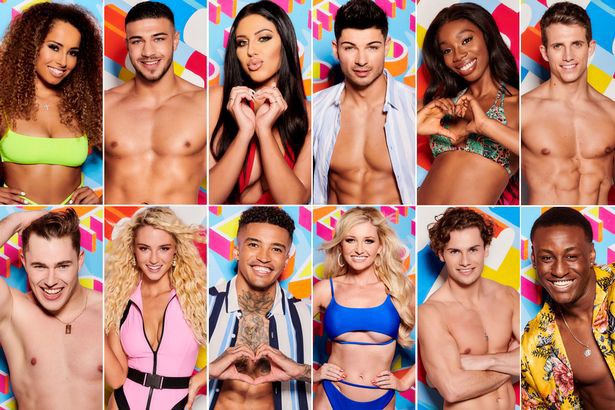h2>Dating : Five Things Love Island Teaches Us About Society
It’s unsurprising to be honest, that’s why it’s so infuriating
Note: This was originally posted to Society19 but has since been re-edited and largely rewritten.
Love Island may be a competitive show where good looking people stay out in the sun and couple up with the goal of winning £50,000, but with the romance comes drama and there is a lot to take away from a production with such a simple premise. With the show receiving a record breaking six million viewers and the franchise expanding across the world to the US and Australia, Love island’s raunchy party games, sun lounge drama and late night escapades will give us a glimpse into the attitudes and lives of ‘beautiful’ people looking for fame and how what they do or say sorely reflects onto us as a society.
The Famous Double Standard
We all know double standards exist, it’s a given that certain ‘types’ of people are more easily forgiven than others for the poor choices they make. That couldn’t be more evident than with former islander, Sherif Lanre and Maura Higgins. Sherif was kicked out of the villa for reasons ITV refused to release until the speculation got out of hand. Accusations of a violent fight, antisocial behaviour and ‘self loving’, which is against the rules, continued to paint the semi-pro Rugby player in ill-favour until they had no choice but to reveal it was an accident and a poor choice of words, not broadcast, that saw him removed from the show.
Adding more diversity isn’t going to magically solve the problem of anti-blackness.
Viewers were quick to point out the double standard that did make it to air, Maura’s attempts to pin and kiss boxer Tommy Fury despite him turning away to avoid her advances. Twitter users made it clear it was unfair to remove Sherif for an accident he had no intention of causing and let Maura stay, despite her allegedly sexual harassment of another islander. It goes to show that some sort of bias does exist within large organisations like ITV, who have villainised the unintended actions of a young black man of 20 and Ofcom, who are willing to overlook over 700 complaints into a 28 year-old white woman’s intended actions.
Cancel Culture and Other Toxic Language On Social Media
We saw it first hand in the Twitter challenge that our comments really do affect the islanders who have been away from social media for weeks. With islanders mislead by two-week-old comments, relationships once thought strong wavered. While it made for great TV viewing, some of the comments do pose questions as to how we treat public and semi-public figures who are just as imperfect as we are. Several islanders have already been cancelled and “un-cancelled” at the drop of a hat. Arabella’s name failed to make the trending pages of Twitter in favour of ‘Umbrella’ and ‘Azerbaijan’ and they’ve all been called more deplorable names than they deserve. With the deaths of two previous Love Island contestants, it’s only too clear that we as a society should be conscious of how we see and talk about people in the limelight, no matter how we feel.
Smart People Do Have It Harder
In the pursuit of greater intellect, higher grades and mentally challenging work, it’s not uncommon for smart people to find it more difficult to date. And by smart, we mean anyone with a university degree, masters or PhD and anyone still on a quest for knowledge upon entering adulthood — which is a significantly smaller pool than that of the “average” population.
2017 saw the islanders confused by Camilla Thurlow’s dangerous job disposing old and unexploded bombs and landmines in countries such as Zimbabwe, Cambodia and Afghanistan. We were confused, too. Why would someone with such an interesting and challenging profession choose to join Love Island if they weren’t looking for fame or riches, but down to earth people just as passionate as they are? Of course that year, books were allowed in the villa. Her shy but warm personality, brains and beauty certainly kept her popular with the guys, but sadly a lot of them couldn’t keep up with her, until she met Jamie. As of 2019, they are still together, one of the only couples to not catch the ‘Love Island curse’.
Shows like Love Island and Big Brother are a representation of the average heterosexual, cis-gendered Brit.
The following season saw fans eager to watch Dr Alex, an A&E doctor, to sweep someone up in a whirlwind romance of witty banter and posh flirting, but in the end he left the villa single after not finding his intellectual match. This season, it was 23 year-old scientist and stunner, Yewande Biala who had a difficult time finding love. She initially thought she’d found it with model Danny, who’d been keen on her before setting foot inside the villa. However, her closed-off and safeguarding nature and his head turning for ‘supermodel’ Arabella, saw her eliminated from the island after a savage recoupling. In his recoupling speech, Danny said he chose Arabella because they were on the same intellectual level — seemingly much lower than hers.
Colourism is Still a Problem, Despite This Year’s Seemingly More Diverse Cast.
It doesn’t matter how much you diversify a show, people are going to like who they’ve been conditioned to find attractive. In the first episode of the series, it was more than Sherif’s yellow shirt that made him the girls’ last pick. Firefighter, Michael of mixed heritage and Yewande were also left single and had to be coupled together. Marcel Somerville, the contestant’s last pick of 2017’s Love Island tweeted out: This is mad!!!! #LoveIsland flash backs! Black guy, black girl and mixed race guy all left unpicked. Mad!!!
Last year, it took Samira Mighty’s tears in the confession room to highlight the problem of colourism and underlying racism when it comes to dating and being a young person of colour in the UK. Why was she so upset? Shouldn’t she have just taken the rejection on the chin? Repeated rejection is what a lot of people of colour have to go through, black women and Asian men more than others. That being said, the rise in popularity of Asian dramas, anime and K-pop, means an increasing number of young Asian men are bypassing a lot of old preconceived stereotypes and are now deemed more desirable by those outside of their race. That leaves the black woman, the least messaged and least desirable, according to OK Cupid.
With the black and mixed race men being heavily desired due to positive racism and other ‘myths’, they are increasingly likely to date women and men outside of their race. There is also the overwhelming popularity of mixed race people, sexually desired by the white majority who feel they’re sampling a more palatable form of blackness that fits within the largely Eurocentric standards of beauty the UK as a society conforms to. Adding more diversity is not going to magically solve the problem of anti-blackness. In fact, it only exemplifies the problem.
Love Island is Ultimately Our Society Summed Up.
As much as we don’t want to admit it, shows like Love Island and Big Brother are a representation of the average heterosexual cis-gendered, non-disabled Brit and their attitudes towards love and life, or in other words, the views of the majority. ITV bosses admitted to not giving us a more body positive and sexually diverse cast in fear of viewership losses. While previous seasons may not have been as accurate and hard hitting as last year, with islanders from a wider range of backgrounds and ethnicities, the joys and pitfalls of this year’s show are accurate enough for us to see that we’re still not there yet, at all.



